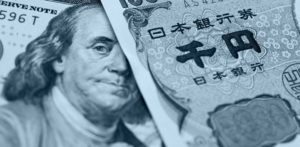Market Update 12th August 2024

All our yesterdays
Thoughts and prayers with the Trump traders. It turns out three weeks is a long time if you’re making stuff up.
Anyway, Warren Buffett joined Berkshire Hathaway a really long time ago – in 1965. At that time the average equity holding period was eight years but it is now down to less than one. Warren was in the news last week, as he sometimes is, because he had sold some of his tech holdings and was sitting on a $277bn cash pile. Maybe he knows something we don’t.
Last week saw some of the most severe market moves for some time, mostly based around Japan, but sent waves through other markets as well. The market rebounded very quickly in the short term, and suddenly we see lots of commentary about the market’s failure to “predict” these moves. No one knows anything, we have had enough of experts.
Chief suspect for all this – not for the first time – was the “carry trade”. This is a leveraged trade, where you short the yen which has almost no interest rate or yield, and buy something that yields more, such as the Mexican peso. It all works fine until it doesn’t because you are also short volatility, which spiked to a level not seen since Covid arrived.
The other problem with the carry trade, like other spread trades, is that you don’t really own anything. Merger arb for example, hedge funds are long a company that has been bid for and short the acquiror, or hedged investment trust discount trades where you are long the shares and short the underlying assets. You want the net exposure to be zero – meaning the two sides should be equal.
In all these cases, you are just waiting for a wide spread to become tighter. If things go wrong – as they sometimes do, there is no safety net. The M&A deal breaks down, your short goes up, your long position plummets, your boss spontaneously combusts. Add in some leverage (again) and one failed trade like this can easily close the fund.
Can we reasonably be expected to predict these events in advance? There are two sides to this – I’m going to call them fundamentals and trading.
There is an established fundamental relationship between the dollar/yen exchange rate, and real yields in the two countries. Japan has been raising rates, while the US is almost certainly on the verge of a rate cutting cycle. You can analyse this and take a view based on what you know and how you interpret it.
But the trading part is not predictable by the rest of us. One of the reasons for the reduced holding periods since 1965 is the rise of computer driven trading. The yen being historically low and likely to rise at some point was quite easily knowable – we have written about it here several times, including just a few weeks ago. The exact timing, size and speed of the move – which is the bit you would really want to know – is very much not knowable or predictable by anyone and definitely don’t trust anyone who says otherwise. Most of the people responsible for these trades probably didn’t know it would be happening when they went to bed the night before.
We have touched on this before in other contexts. I don’t know what Warren Buffett is doing with $277bn in cash, but I doubt he is trying to predict daily moves in the Japanese stock market, then trying to guess a second order effect of this in Korea, and neither are we.
We have liked Japan for some time on valuation grounds with support from market reforms designed to increase the focus on company returns and shareholder value. We recommend several funds to reflect this view, including a fund focusing on smaller companies, which outperformed the larger company funds last week. They all reported that they had been selectively buying the dip. The market was up 27% year to date only a month ago and is still one of the better performing global equity markets.
Last word on leverage. It’s not just hazardous to spread trades. My most difficult ever client interaction was in a previous role where my employer had hit on the idea of lending money to clients to leverage their portfolios, with the portfolio itself as collateral.
In early 2008 they had lent a client money to buy a large amount of stock in his former employer, UBS – a company we did not own ourselves. The stock fell and they margin called him, asking for the loan back, because of the lower value of the collateral. The first I knew about any of this was when he called to ask me what I thought about it, and did he need to sell the stock at an enormous loss to repay the loan? Hawksmoor does not do this.

Robert Fullerton – Senior Research Analyst
Hawksmoor Investment Management Limited is authorised and regulated by the Financial Conduct Authority (www.fca.org.uk) with its registered office at 2nd Floor Stratus House, Emperor Way, Exeter Business Park, Exeter, Devon EX1 3QS. This document does not constitute an offer or invitation to any person in respect of the securities or funds described, nor should its content be interpreted as investment or tax advice for which you should consult your independent financial adviser and or accountant. The information and opinions it contains have been compiled or arrived at from sources believed to be reliable at the time and are given in good faith, but no representation is made as to their accuracy, completeness or correctness. The editorial content is the personal opinion of Robert Fullerton. Other opinions expressed in this document, whether in general or both on the performance of individual securities and in a wider economic context, represent the views of Hawksmoor at the time of preparation and may be subject to change. Past performance is not a guide to future performance. The value of an investment and any income from it can fall as well as rise as a result of market and currency fluctuations. You may not get back the amount you originally invested. Currency exchange rates may affect the value of investments.
View more news
